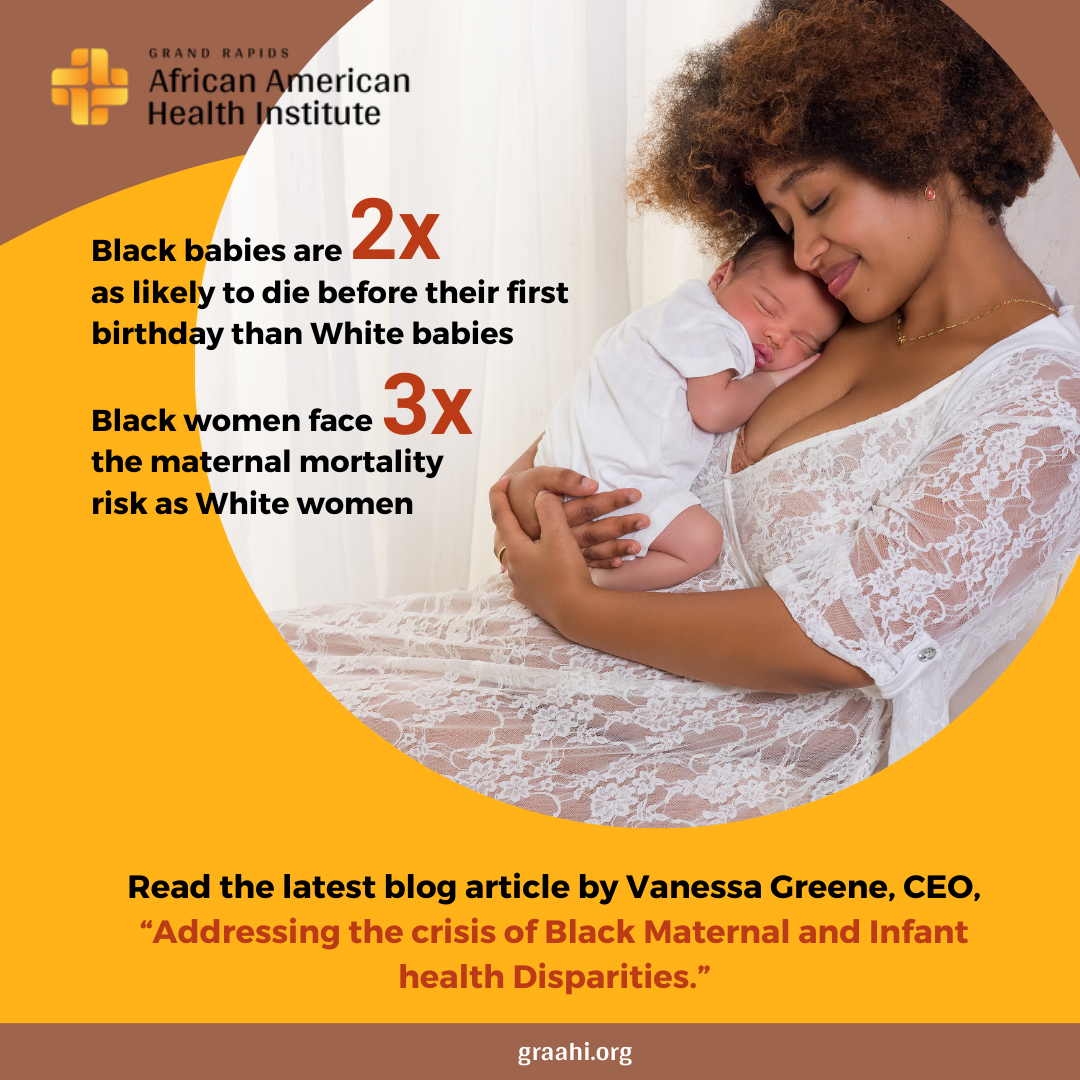By Vanessa Greene, CEO, GRAAHI
In the landscape of maternal and infant health in the United States, there exists a profound and persistent disparity that demands our attention: the disproportionate rates of mortality and morbidity among Black mothers and infants. Despite advances in medical technology and healthcare access, Black women are still two to three times more likely to die from pregnancy-related causes and experience higher rates of pregnancy-related complications such as pre-eclampsia, eclampsia, and gestational diabetes than white women, and Black infants are more than twice as likely to be born prematurely and with low birth weights, factors that significantly increase their risk of mortality and long-term health challenges. Additionally, Black babies are twice as likely to die before their first birthday compared to White babies. These statistics paint a stark picture of the obstacles Black mothers and infants face in achieving optimal health outcomes.
The roots of this crisis run deep, intertwining historical injustices, socioeconomic factors, and systemic racism. From the legacy of slavery and Jim Crow laws to ongoing discrimination in healthcare settings, Black individuals have faced barriers to accessing quality care and have been subject to unequal treatment within the medical system.
Policy initiatives at the federal, state, and local levels are essential for driving systemic change. In the pursuit of equitable maternal healthcare, the roles of Black Birth Workers and Midwives are increasingly recognized as pivotal in improving birth outcomes. Through education, emotional support, and empowerment, doulas and midwives help Black mothers reclaim agency over their bodies and births, navigate the complexities of pregnancy and childbirth, and develop a sense of empowerment and self-efficacy. Thus, Black women who receive care from Doulas and Midwives experience lower rates of preterm birth and low birth weight infants, due to the personalized care and support they provide.
In recent years, there has been growing recognition of the urgency to address Black maternal and infant health disparities. Advocacy groups, healthcare organizations, and policymakers are increasingly mobilizing to develop solutions and advocate for equity in healthcare delivery. However, meaningful progress will require sustained commitment, resources, and collaboration across sectors. Continuous investment in and expanding access to doulas and midwifery care is essential for advancing equity in maternal healthcare and ensuring that all Black mothers receive the support and respect they deserve.
Mindful of the data and the growing disparities GRAAHI has committed itself to take seriously our responsibility to black birth givers in Grand Rapids in particular. We have been collaborating with community partners to introduce the concept of a birth plan to expectant parents as the first step to exercising agency over one’s birthing process. We continue to send our staff and provide resources for others in our community to become birth and breastfeeding doulas to elevate the voice of the birth giver and provide evidence-based information. We have incorporated a doula and midwife track to our Pathways Workforce Development Initiative to increase diverse leaders in the healthcare sector and another level of support to Black birth givers. We have also implemented a multidisciplinary Maternal Infant Health Task Force to develop specific, actionable, and measurable targets to significantly reduce mortality rates among Black mothers and babies.
Ultimately, achieving equity in maternal and infant health is not just a matter of improving healthcare access; it is a moral imperative and a reflection of our society’s values for life. By dismantling systemic barriers, confronting institutional racism, and prioritizing the well-being of Black mothers and infants, we can work towards a future where race and socioeconomic status is not a predictor of health outcomes.
